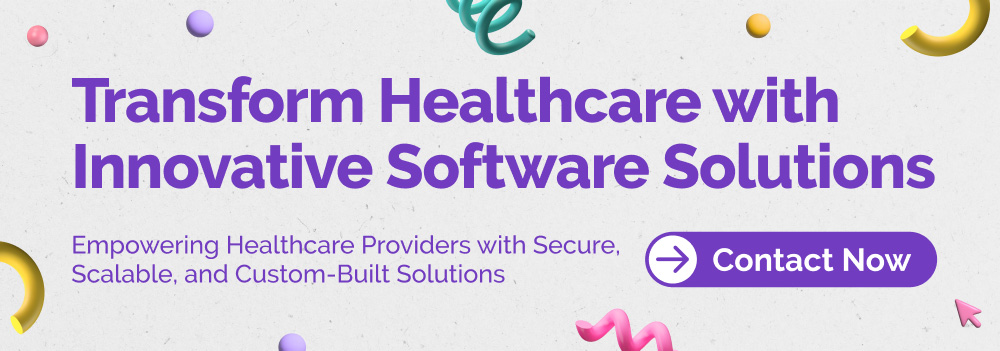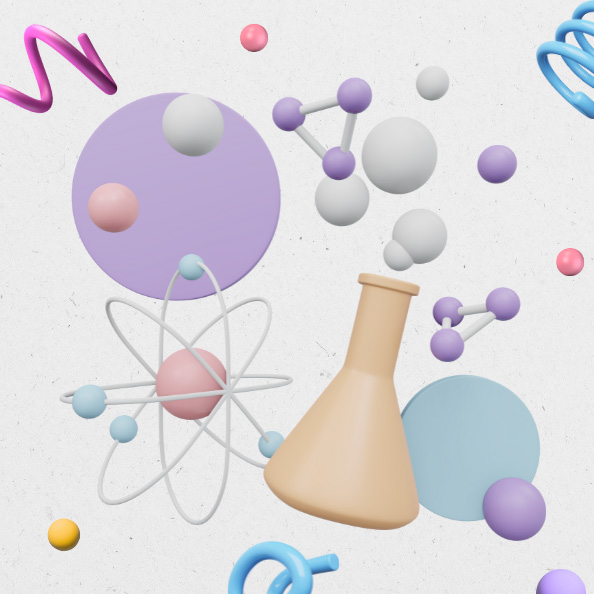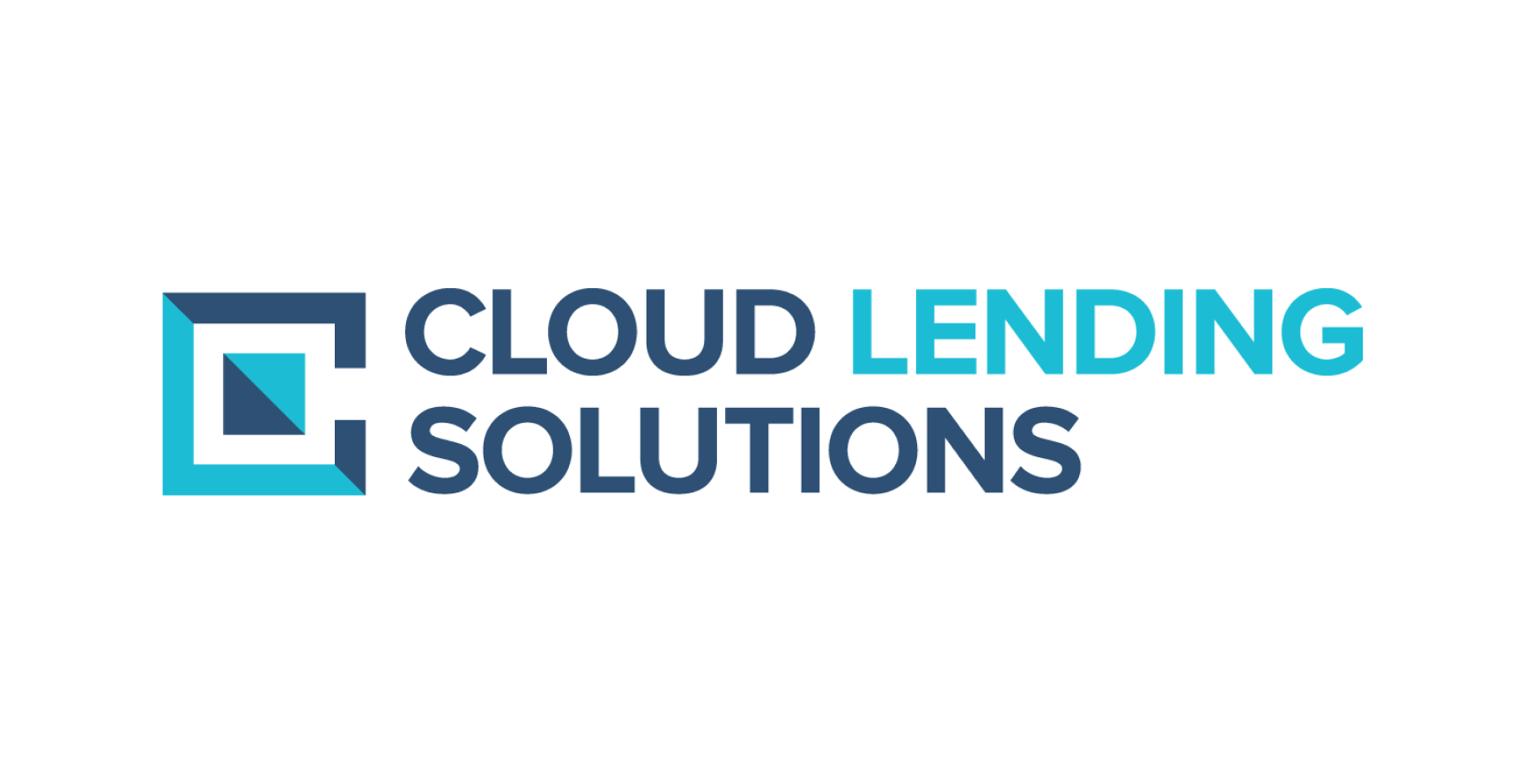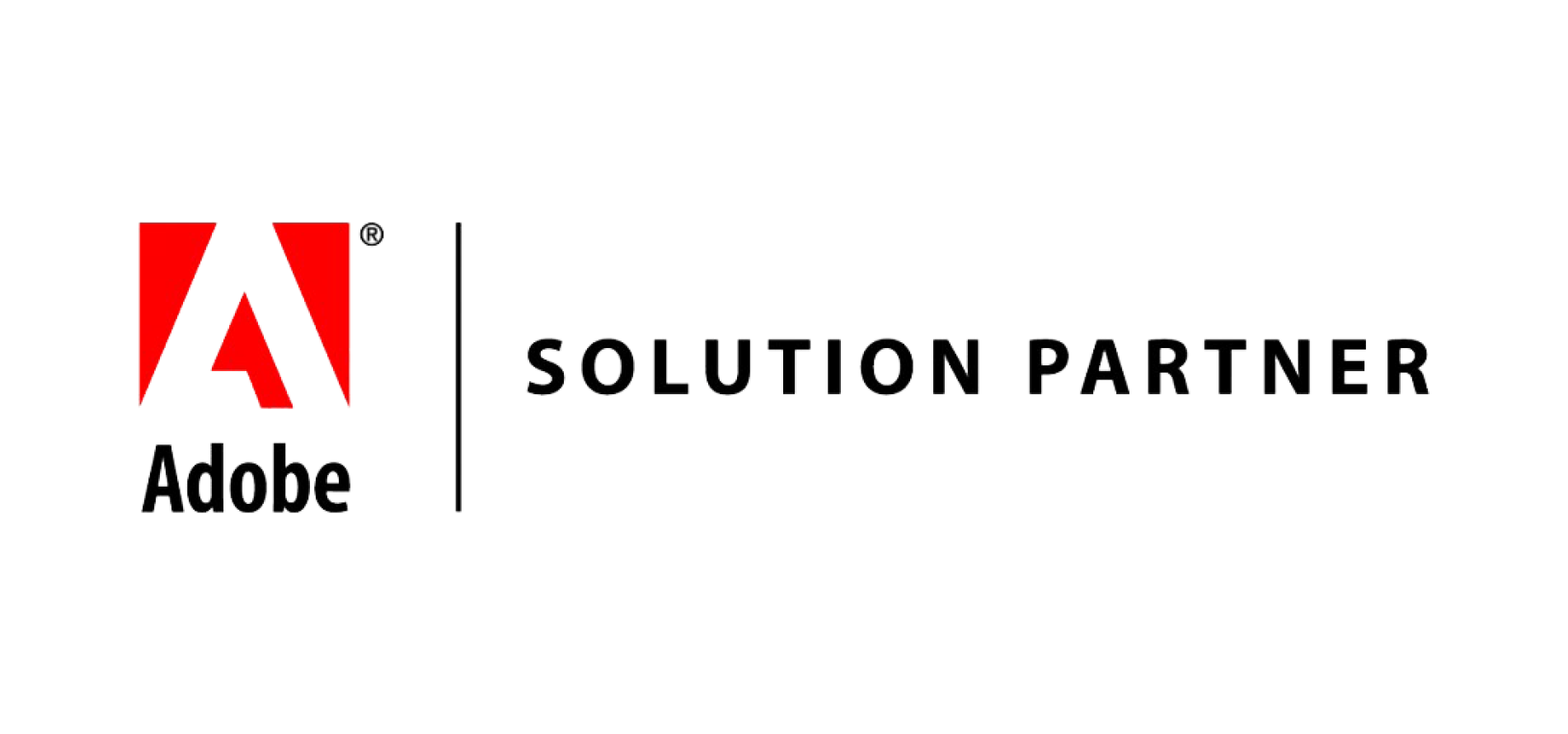Software Product Development, zBlog
Healthcare Software Development: Transforming Patient Care with Innovative Solutions
atif | Updated: March 21, 2025
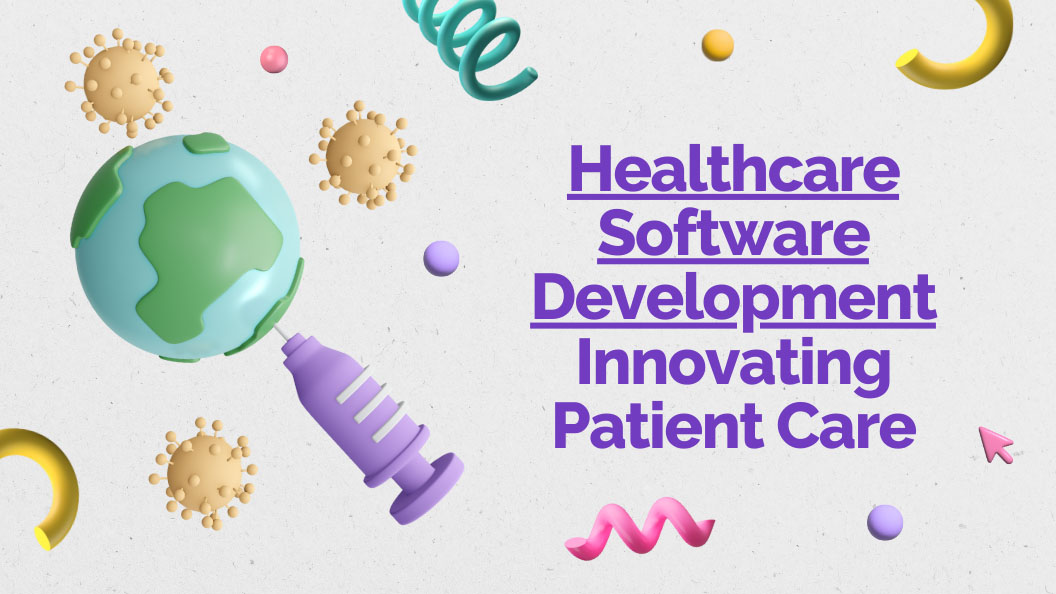
Technology plays a pivotal role in improving patient outcomes, streamlining administrative processes, and enhancing data security in today’s fast-evolving healthcare landscape. Healthcare software development has emerged as a vital investment for healthcare providers, payers, and pharmaceutical companies seeking to deliver efficient and effective services.
Understanding Healthcare Software Development
Healthcare software development refers to the process of designing, building, testing, and maintaining software applications tailored to the healthcare industry. These applications address clinical, operational, and administrative needs while ensuring compliance with industry regulations such as HIPAA, HL7, and GDPR.
Types of Healthcare Software Solutions
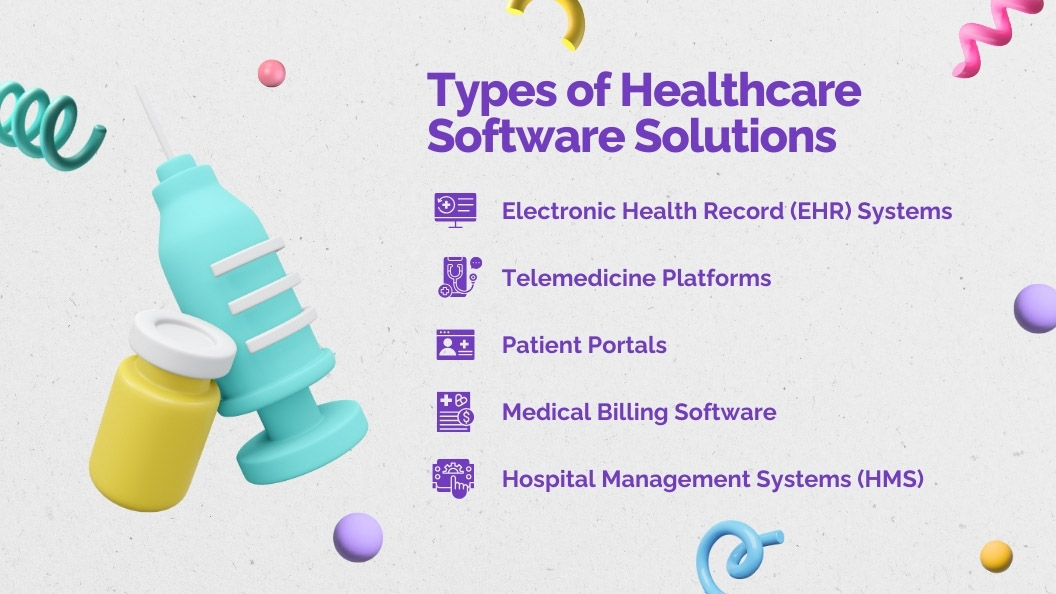
- Electronic Health Record (EHR) SystemsEHR systems centralize patient data, enabling medical professionals to access and update information in real-time. Features like secure data sharing, integration with diagnostic tools, and automated alerts improve efficiency and accuracy.
- Telemedicine PlatformsTelemedicine solutions enable remote consultations, allowing patients to access care from the comfort of their homes. Features like video conferencing, e-prescriptions, and virtual follow-ups ensure seamless doctor-patient interactions.
- Patient PortalsPatient portals empower individuals to manage appointments, access test results, and communicate with healthcare providers. These platforms enhance patient engagement and improve treatment adherence.
- Medical Billing SoftwareMedical billing solutions automate invoicing, insurance claims, and payment tracking. They reduce manual errors and accelerate revenue cycles for healthcare institutions.
- Hospital Management Systems (HMS)HMS platforms streamline administrative workflows by managing patient admissions, staff schedules, inventory, and billing, improving overall operational efficiency.
Key Features of Effective Healthcare Software Solutions
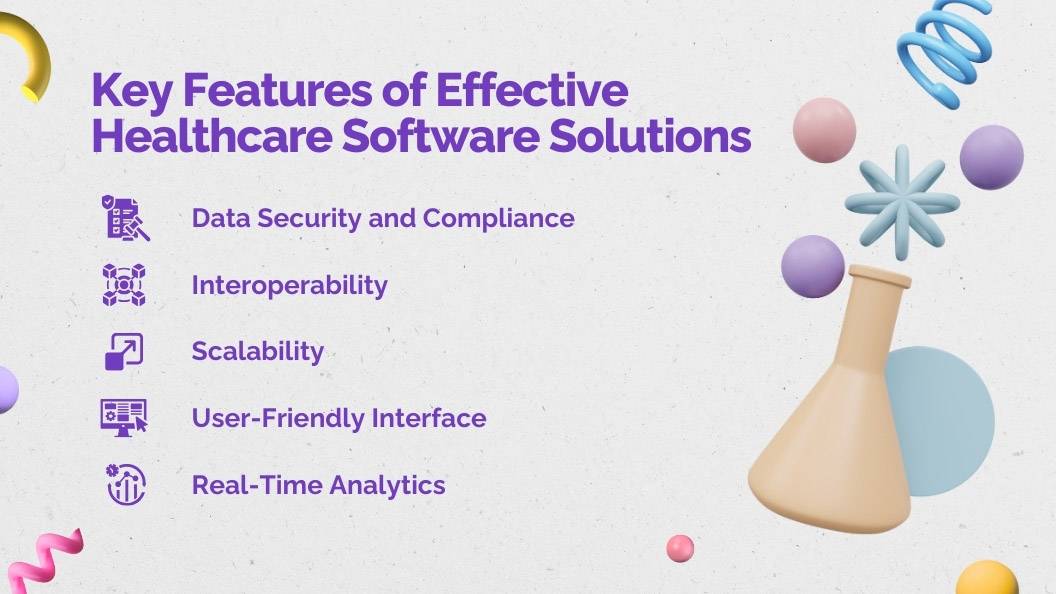
To ensure optimal performance, healthcare software development should incorporate features such as:
- Data Security and Compliance: Robust encryption, role-based access controls, and compliance with regulatory frameworks.
- Interoperability: Seamless integration with third-party systems like diagnostic tools and pharmacy databases.
- Scalability: Flexible architecture to support growing patient data volumes and expanding services.
- User-Friendly Interface: Intuitive design for medical staff to easily navigate and access information.
- Real-Time Analytics: Data-driven insights to enhance decision-making and improve patient outcomes.
Benefits of Healthcare Software Development
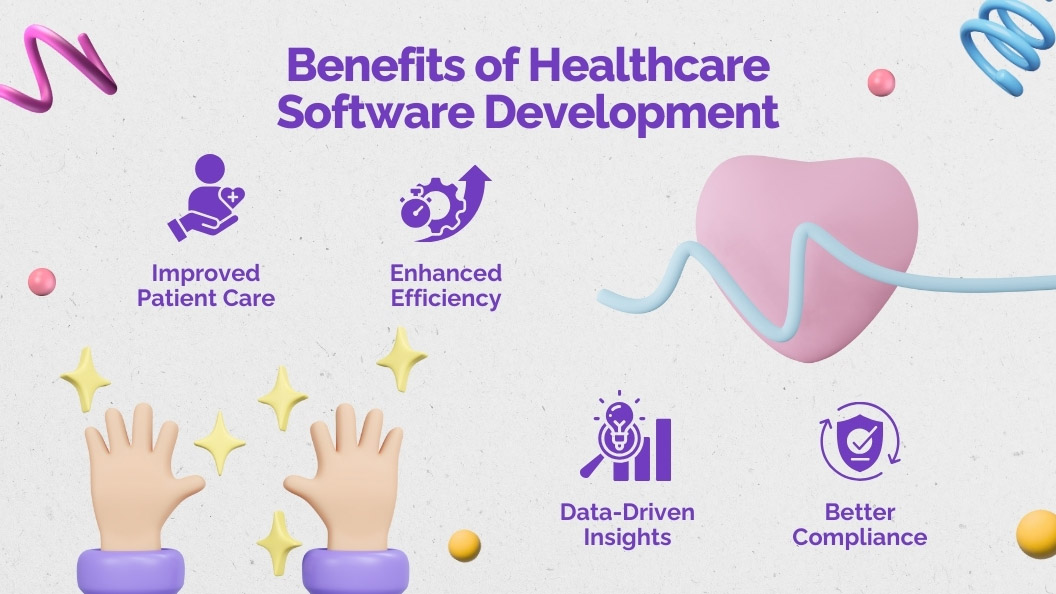
- Improved Patient Care: By digitizing records, automating processes, and enhancing communication channels, healthcare software helps reduce errors, improve diagnosis accuracy, and enable personalized treatments.
- Enhanced Efficiency: Automation of administrative tasks, such as appointment scheduling, billing, and reporting, reduces manual effort and minimizes delays.
- Data-Driven Insights: Healthcare software integrates analytics capabilities that help healthcare providers track patient progress, predict treatment outcomes, and improve clinical decision-making.
- Better Compliance: Custom healthcare solutions ensure that organizations adhere to industry standards, safeguarding patient data and minimizing legal risks.
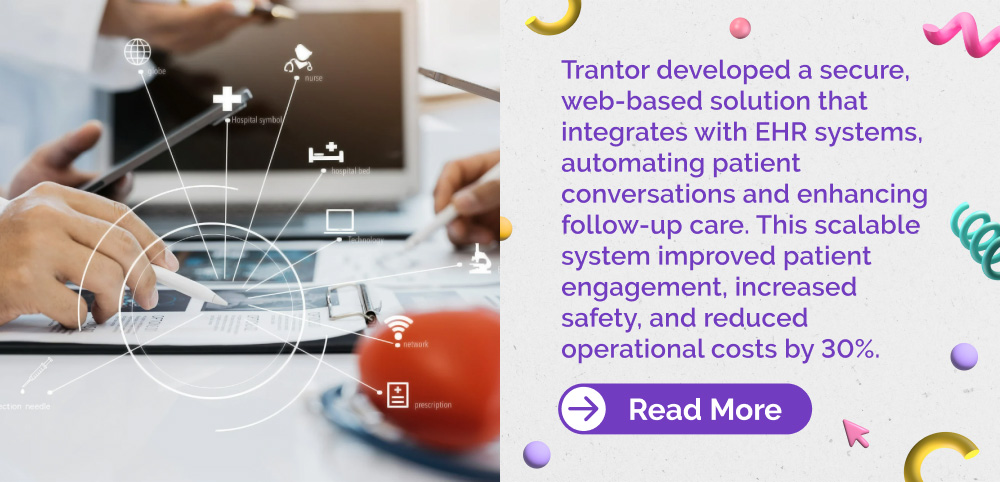
Challenges in Healthcare Software Development
- Regulatory Compliance: Ensuring software meets HIPAA, GDPR, and other global healthcare standards is crucial. Non-compliance can lead to severe penalties and data breaches.
- Data Security: Since healthcare data is highly sensitive, implementing robust encryption, authentication, and intrusion detection systems is essential.
- Integration with Legacy Systems: Healthcare institutions often rely on outdated systems, making seamless integration a significant challenge for developers.
- User Training and Adoption: Ensuring medical staff are well-trained to use new software is key to maximizing its effectiveness and minimizing errors.
Best Practices for Healthcare Software Development
- User-Centric Design: Prioritize the user experience by understanding the workflows of healthcare professionals.
- Agile Development Methodology: Adopt iterative development cycles to ensure flexibility and faster delivery.
- Compliance-First Approach: Incorporate regulatory requirements from the initial design phase.
- Robust Testing: Conduct comprehensive testing to identify security vulnerabilities, performance issues, and functional bugs.
- Ongoing Maintenance and Support: Regular updates and technical support ensure optimal performance and security.
Future Trends in Healthcare Software Development
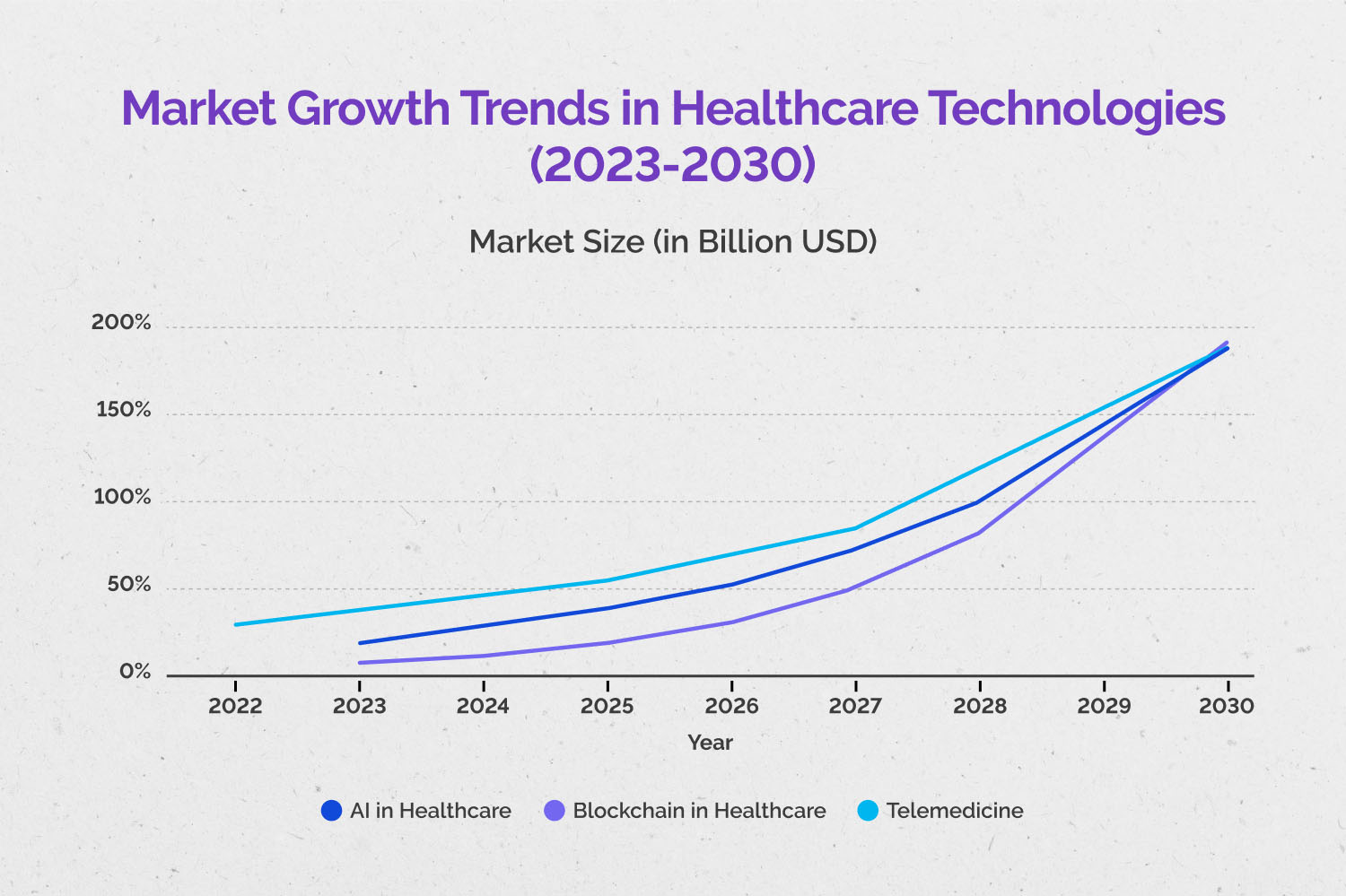
The healthcare technology landscape is rapidly evolving, with innovations transforming patient care, data security, and operational efficiency. Here’s a comprehensive look at the most influential trends and emerging technologies:
- Artificial Intelligence (AI) in Healthcare: AI’s market size is projected to reach $187.95 billion by 2030, driven by advancements in medical imaging analysis, predictive analytics, and personalized treatment planning. AI enhances diagnostic accuracy, automates administrative workflows, and supports efficient drug discovery.
- Blockchain Technology in Healthcare: Blockchain is anticipated to grow at a CAGR of 63.3%, reaching $192.02 billion by 2030. This growth stems from its ability to provide secure, immutable data storage and streamline processes like billing and claims management, enhancing data security and interoperability.
- Telemedicine: Expected to reach $187.95 billion by 2030, telemedicine continues to thrive with rising demand for virtual consultations and remote monitoring. Telehealth platforms integrate IoMT (Internet of Medical Things) and wearable devices for real-time data sharing, improving care delivery.
Emerging Technologies Shaping Healthcare Software
- Cloud Computing: Enables scalable infrastructure, real-time data access, and robust disaster recovery solutions.
- Internet of Medical Things (IoMT): Enhances connectivity between medical devices, supporting predictive healthcare and remote surgeries.
- Interoperability Standards: Improve seamless data exchange across healthcare systems for better-coordinated care.
- Virtual Reality (VR): Used in surgical simulations, patient education, and mental health therapies for enhanced treatment experiences.
Future Outlook
The exponential growth across these sectors reflects a paradigm shift in healthcare delivery. Developers must prioritize integrating AI, Blockchain, IoMT, and Cloud Solutions to build secure, scalable, and patient-centric healthcare software systems.
Conclusion
Investing in customized healthcare software development can significantly enhance operational efficiency, improve patient outcomes, and ensure regulatory compliance. With expertise in developing secure and scalable healthcare solutions, Trantor empowers healthcare organizations to embrace digital transformation and deliver superior patient care. By leveraging advanced technologies and industry best practices, Trantor ensures its healthcare solutions are innovative, reliable, and future-ready.
